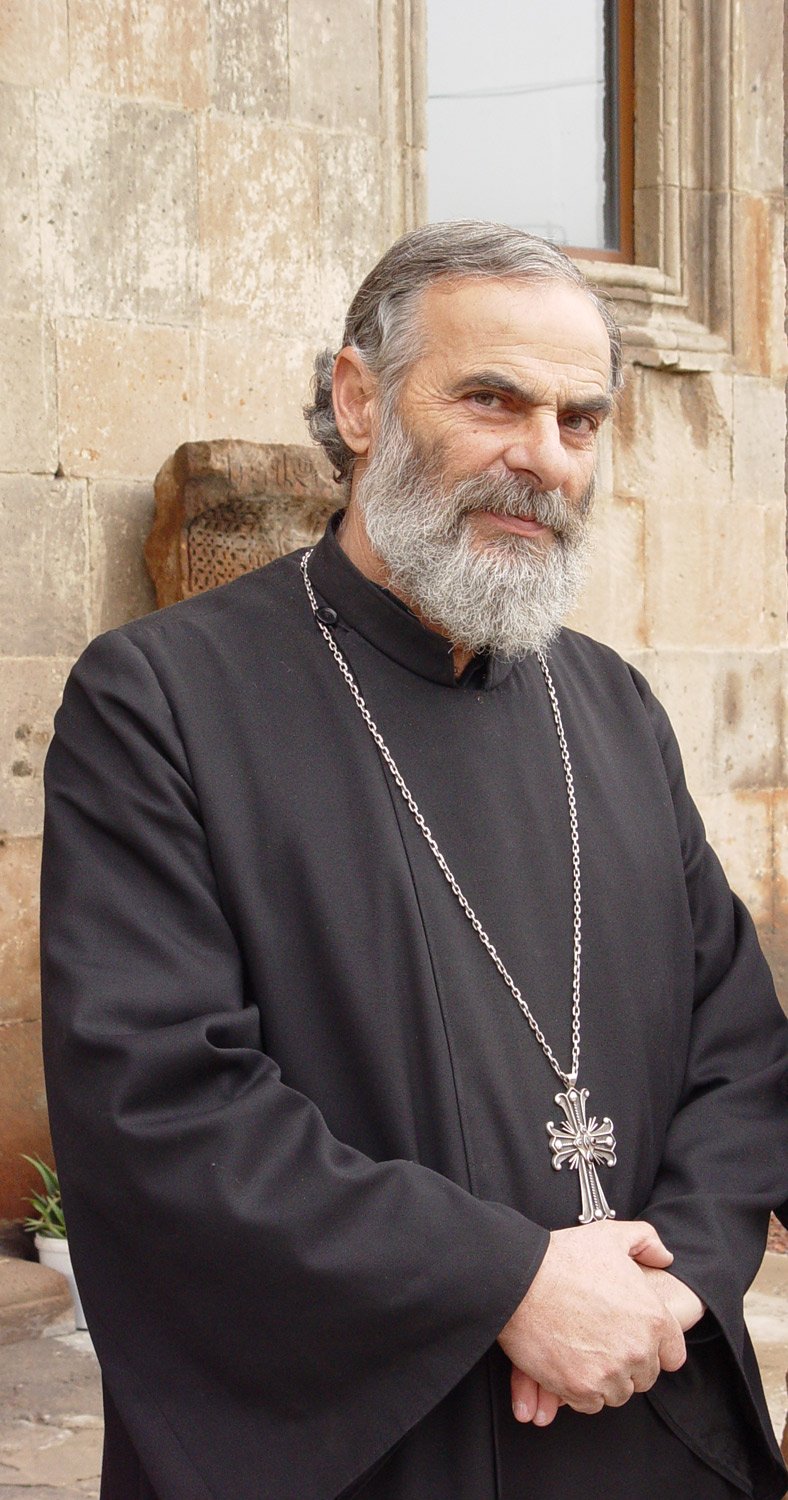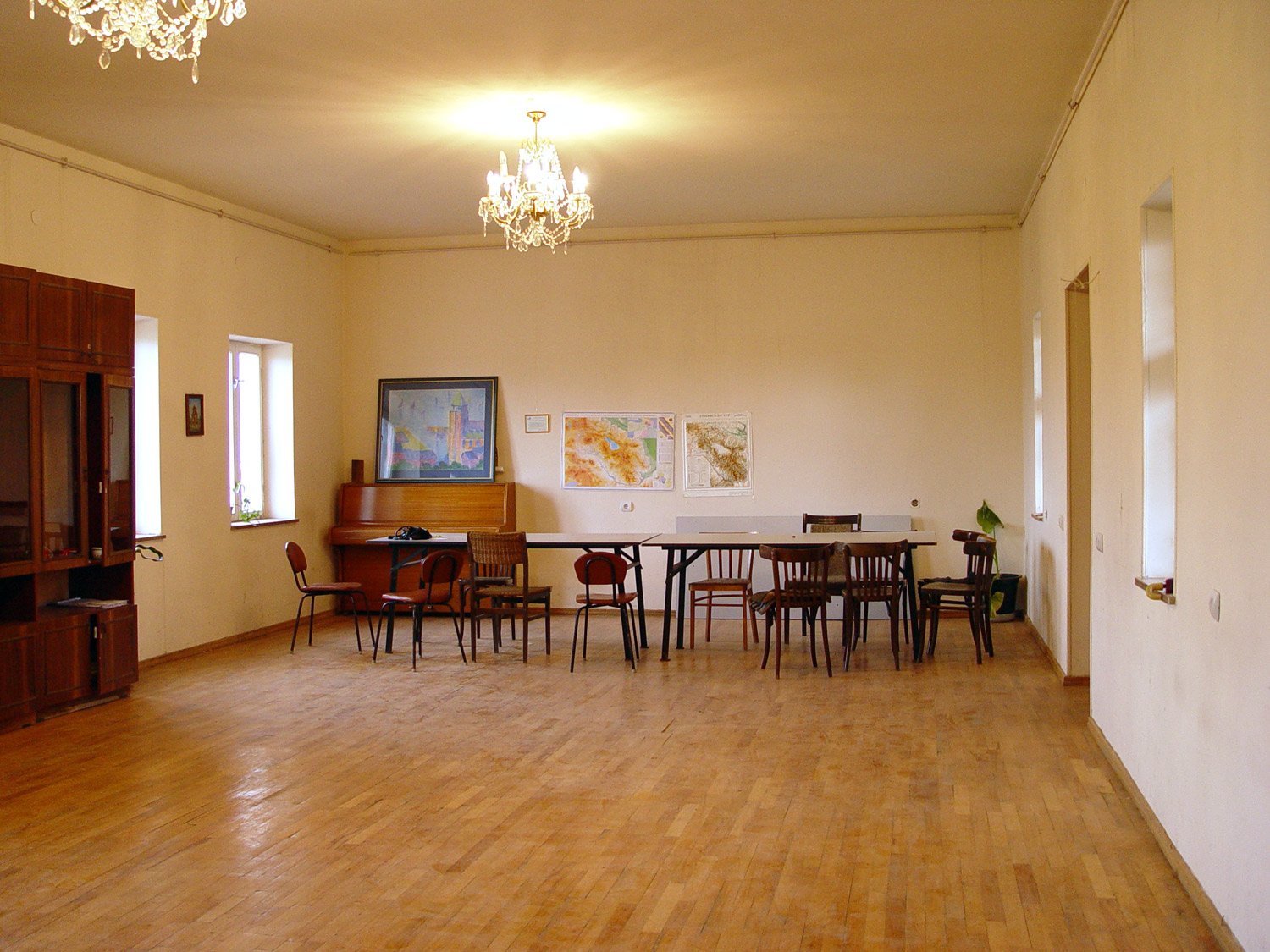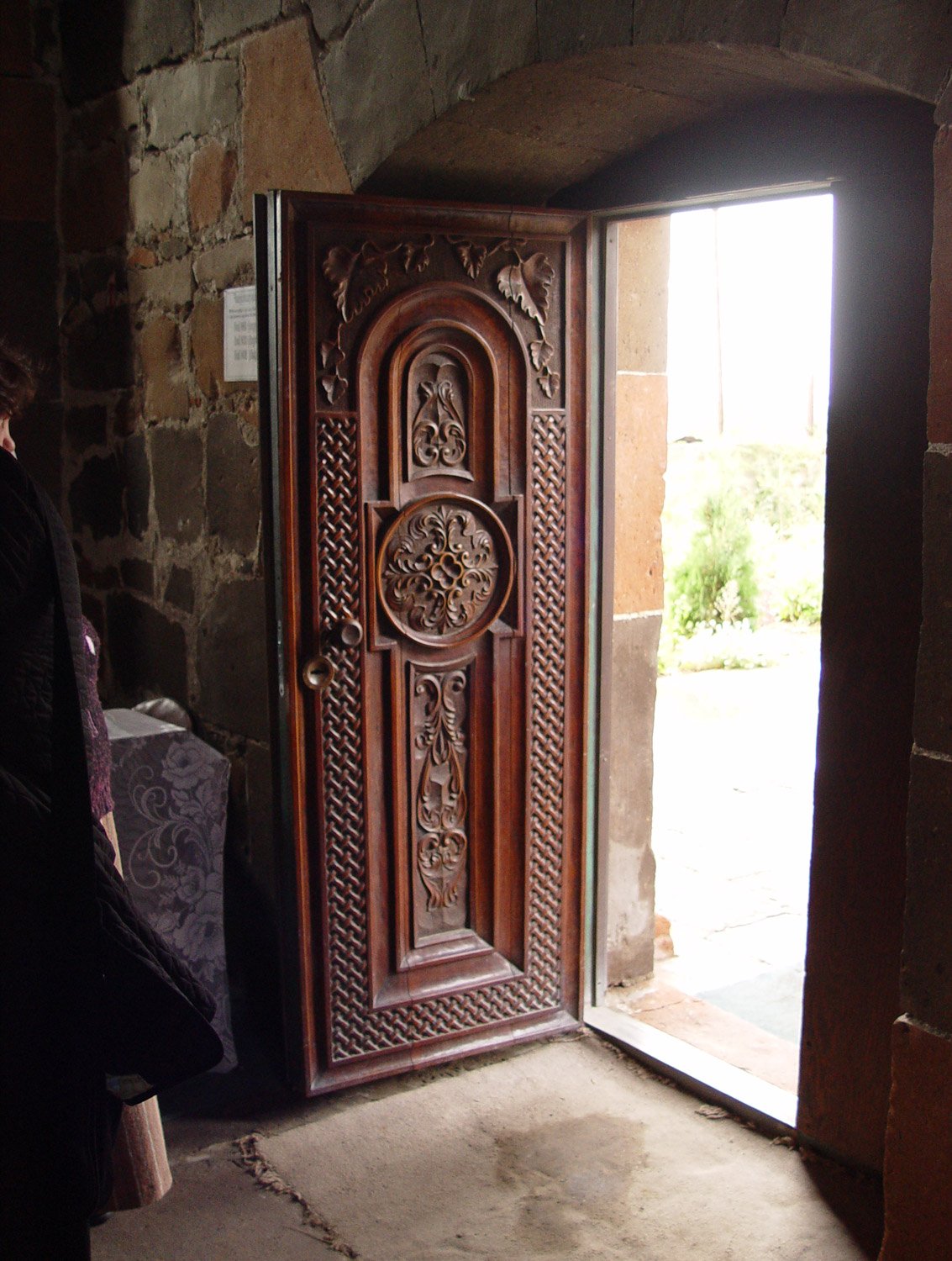
(© K. Vrtanesyan)
Armenian News Network / Groong
March 27, 2006
Travel Wire
By Ruth Bedevian

|
|
Father Guregh Talian (© K. Vrtanesyan) |
Standing tall and serene with gentle, yet penetrating eyes, Father Guregh Talian greets me, a visitor from America. Shepherd to his flock for the past nine years, he begins to explain in a soft-spoken manner, `Sourb Katoghike (Holy Universal) Church , has 4th century roots. The first structure was destroyed by an earthquake in 1679 and by 1890, the second edifice was finished. Unlike some churches that were kept open as `museums' during Soviet times, Sourb Katoghike was used as a warehouse!'
Jrvesh (Waterfall in English), is a small town located in the Kotayk Province on the outskirts of Yerevan. In 1991 when the USSR ceased to exist, the townsfolk rolled up their sleeves and went to work to restore their local church because the onset of independence gave every citizen of the new Republic of Armenia the right to worship God. For the people of Jrvesh, this meant a return to their ancient Apostolic Church.
Father Guregh (Cyril in English), gently nods his head, declaring, `It took our people four months, working five days a week to remove the plaster and restore the walls to their original natural stone. The women came every Saturday to remove the debris and sweep the interior so that Liturgy could be celebrated on Sunday. In all that time, we did not cease. Liturgy was never cancelled. Our people are workers, not farmers, and therefore they must give from their earnings to keep their church solvent. They give their time and talents, also. The entry door was hand carved by one of our faithful. The altar curtain was a gift from my wife of blessed memory, Joanna.'
Standing in the courtyard facing the entrance to the church, I have difficulty imagining a sight fifteen years earlier - a barren unkempt plot of land where an old converted church building stood among overgrowth and stones. When restoration began, there were no walls enclosing the complex, no flowers adorning the courtyard, no additional building, no bathrooms. No life!

|
|
Sourb Katoghike Community Hall (© K. Vrtanesyan) |
Sourb Katoghike is a thriving parish that has created a community of family and whose life is centered in the church. It reminds me of a typical active parish in the American experience.
At the encouragement of Father Guregh, parents bring their children to be baptized at eight days old so that they, along with their parents, will begin early their journey into the life of the church. The shepherd explains more deeply his purpose, avowing, `I was born in Soviet times and did not come from a believing family. As I grew, I kept searching for meaning in my life. I came to Baptism at the age of thirty-three.' A theater director in secular life, he tells that his paternal grandfather, Krikor Talian, was Sheram, a famous minstrel in Eastern Armenian culture. Despite this popular history, he sought the sacrament of Holy Orders. He was ordained to the priesthood by His Holiness Karekin II after successful completion of his studies in the Gevorkyan Seminary of the Holy See of Etchmiadzin. Father Guregh appears on local television in a program for children entitled, Jampaner (The Way) which underscores Christian values.
Father Guregh continues his narrative, `Our worshippers make fifteen pilgrimages a year and in the last five years, the pilgrimages have grown more strongly evangelical to counter sectarianism. Our last one was a five-day visit to Artsakh. When our people are absorbed in their roots - their soil, their heritage - when our people truly know their own land, country and traditions, then no `wind' can come along and scatter them afar.' [Many foreign sects and cults have flooded Armenia since the demise of the Soviet Union.]

|
|
Entry Door Carved by Parishioner (© K. Vrtanesyan) |
`Almost all the labor is supplied by volunteer crews which creates a deep sense of belonging to and responsibility for their church home,' Father Guregh comments. I feel the scraping together of hard-earned dram as Father Guregh speaks.
The choir meets regularly and performs impressively. It recorded a series of seventeen hymns. The compact disc, which is not professionally, prepared resonates with the voices of children and adults sans musical accompaniment - totally a cappella. Like most accomplishments in this budding Republic of Armenia, the amateur challenges the professional.
Saying goodbye to Father Guregh and Sourb Katoghike is poignant. It is inspiring to behold this community. It is a beacon of light where only fifteen years earlier, it was mired in darkness.
-- Ruth Bedevian continues her visits in Armenia. Many of her articles are at: http://www.groong.org/orig/armeniahousemuseums.html
|
Redistribution of Groong articles, such as this one, to any other
media, including but not limited to other mailing lists and Usenet
bulletin boards, is strictly prohibited without prior written
consent from Groong's Administrator. © Copyright 2006 Armenian News Network/Groong. All Rights Reserved. |
|---|